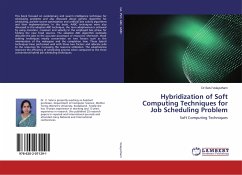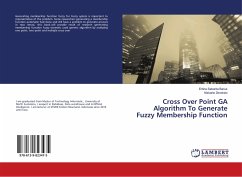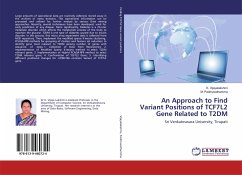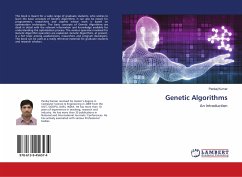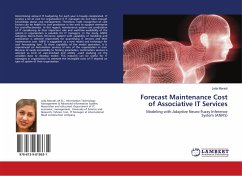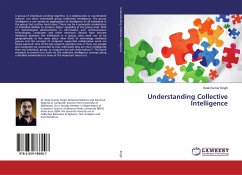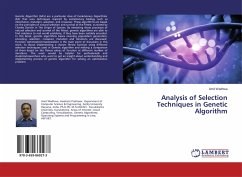
AN Approach Multi-Agent Systems And Emergence Methods For Maintenance
Versandkostenfrei!
Versandfertig in 6-10 Tagen
37,99 €
inkl. MwSt.

PAYBACK Punkte
19 °P sammeln!
The main objective of our book is to propose hybrid approaches based on MAS on one side, and the exploitation of emergences methods such as Genetic Algorithms (GA) and the algorithms of Artificial Immune System (AIS) to better integrate systematic preventive maintenance policies in scheduling workshops. The objective is to minimize the time of executions during the course of scheduling. We use advanced operators; the random key for encoding, the selection of classification, the uniform crossover and single point mutation. Furthermore, we have defined a new affinity calculation procedure within...
The main objective of our book is to propose hybrid approaches based on MAS on one side, and the exploitation of emergences methods such as Genetic Algorithms (GA) and the algorithms of Artificial Immune System (AIS) to better integrate systematic preventive maintenance policies in scheduling workshops. The objective is to minimize the time of executions during the course of scheduling. We use advanced operators; the random key for encoding, the selection of classification, the uniform crossover and single point mutation. Furthermore, we have defined a new affinity calculation procedure within the FSHMAIA approach. This procedure is based on the calculation of similarity ratio for each antibody. For this, we have proposed an algorithm based on four criterions for calculating the ratio of similarity. We also evaluated the adaptations of some well-known heuristics, including Johnson (m / 2, m / 2) NEHH, PCDT and PLDT, The originality of this work lies in the use of MAS with GA and AIS in the integration of systematic preventive maintenance policies in a hybrid flow shop scheduling.




